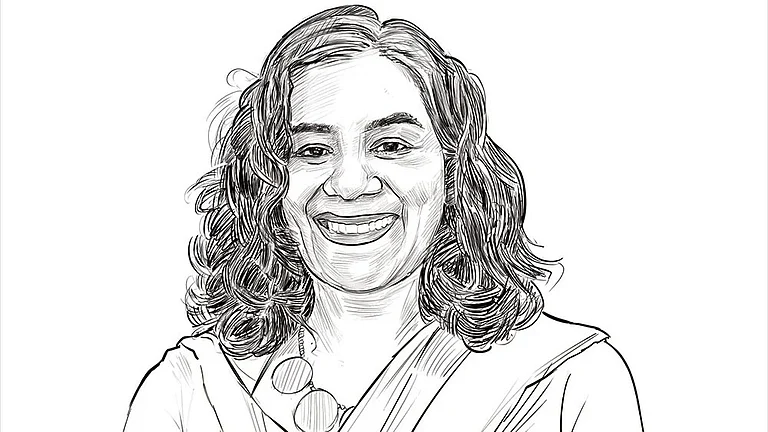A veteran educator reflects on four decades of teaching, growth, and humility.
The diary contrasts authentic classroom connection with the digital age’s impersonal pace.
Retirement emerges as both an ending and a hopeful beginning of renewal and self-discovery.
Teaching Is About Mutual Discovery And A Continuous Self-Renewal: Retirement Diary
Dean of Faculty of Social Sciences, Aligarh Muslim University, Shafey Kidwai ponders on the lessons and trials he encountered during his time as an educator before retirement
An Intentional New Chapter
Four decades ago, my academic journey began with a moment of humility that defined my approach to teaching. Faced with a Vice-Chancellor who demanded I perform an instant lesson at the blackboard, I, a nervous aspirant, could only reply, “I may not be able to teach you, but I can share what I know, no matter how little.” The board’s amusement turned into acceptance, accompanied by a profound truth: “Teaching is not a performative art.” Unlike a musician or a painter, a teacher cannot deliver instantly; authentic pedagogy requires preparation and privacy. This initial lesson—that teaching is an act of genuine sharing, not mere spectacle—has guided me through the decades.
The Silence Drowned Out
The tenderfoot turned veteran, witnessing long, fulfilling, and occasionally challenging years. Now, as I say my final goodbye, I observe the profound impact of technology on the very essence of education. The advent of smart classrooms and digital tools has democratised information and made learning interactive, but this transformation comes at a cost. PowerPoint presentations, while engaging, often drown out the vital, quizzical voices that define a bustling classroom—the quibbling, the silence, and the echoes that signal deep internal processing. Teaching is articulation, but its contradictory, enduring partner is silence. It is within this quiet space that meaning turns impactful, and the core existence of the student is truly seen.
The structured lecture, with its one-way flow of information, risks creating a sense of monomania—a fascination with a single, dominant ideology. Critical questioning is the essential tool students must actively embrace to challenge the status quo. Ideas, as author Nasir Abbas rightly noted, often evade human interrogation because they are shaped by social, political and cultural dynamics, which carry with them power, fear and coercion. My experience in the gothic structure of Lucknow University’s sprawling classrooms taught me this: the academic pursuit is about dismantling all that has been taken as truth to discover what lies beyond it. Students must be encouraged to tune into ‘vivadi sur’, the metaphor for embracing new, often disruptive, perspectives.
The Reciprocity of Learning
In my four-decade career, no year has passed without my realising that my students teach me more than I teach them. It is a tantalising experience woven from tiny hurts, minor grievances, trifling rivalries, and the occasional, frothy triumph. This sense of mutual discovery, of continuous self-renewal, is the heart of the profession. Though I dutifully load new apps and learn new programs to keep pace with transformative technology every academic session, I have always felt like a better teacher only when I am actively in the class, truly interacting. This feeling will resonate forever.
A terminal point has arrived, bringing with it both the relief of escaping work burnout and a gnawing desolation. Upending a four-decade routine instils a feeling of emptiness, but also rekindles hope.
The transition from a full-time structured routine to hours of uncertainty requires a kind of unpreparedness, resembling the natural and inevitable change of autumn leaves falling. This unsettling transition can heighten loneliness and make one acutely aware of vulnerability, especially in a world—even the academic world—where position often defines one’s identity and place.
This modern phenomenon of retirement, and the crisis it entails, were deftly explored by Shakespeare. In King Lear, the king relinquishes his throne but insists on retaining his retinue, as the trappings of the job provided him dignity and worth. His realisation that he is unacceptable without them is exasperating, serving as a powerful lesson for all whose identity is shaped by their position. Like Barbara Pym’s characters in Quartet in Autumn, I grapple with a sense of being adrift and anchorless.
Yet, this life-altering phase calls for ethical, moral and psychological renewal. Retirement, far from being a period of decline, is a time of renewal and exploration—a time to pursue the choices and possibilities life still holds. It is a time for the reading paradise one always wanted. With the youngest Brontë, I take solace: “O, let me be alone a while /No human form is nigh,” knowing that solitude can pave the way for a transformative and intentional new chapter.
Shafey Kidwai is a Sahitya Akademi awardee and a bilingual critic who retired as the Dean of the faculty of Social Sciences, Aligarh Muslim University.
This story appeared as Retirement Diary in Outlook’s November 11 issue, titled "Caste is the Biggest Political Party in Bihar," which explores how caste plays multiple interconnected roles in seat-sharing and coalition-building in the land of the setting sun.


